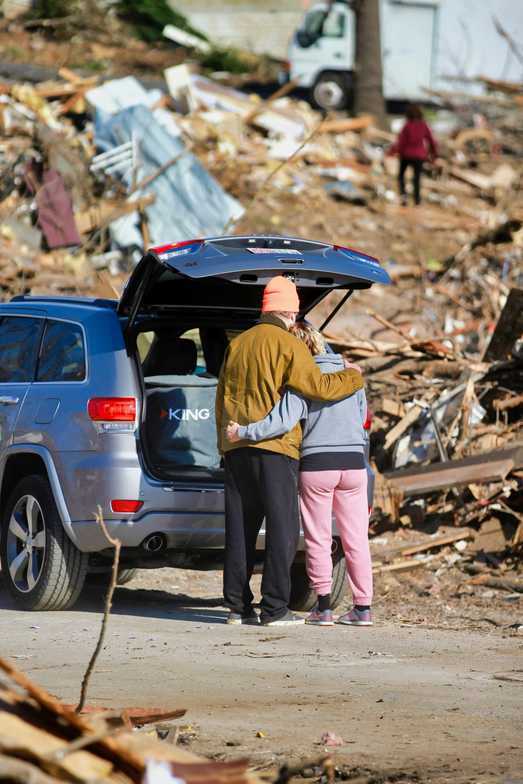1. Acupuncture for Stress and Trauma Relief
Acupuncture, a form of traditional Chinese medicine, has been used for thousands of years to promote balance in the body and support the healing process. When faced with trauma, acupuncture can help by regulating the nervous system, reducing stress hormones, and promoting emotional release. It is particularly effective for conditions such as anxiety, depression, and post-traumatic stress disorder (PTSD), all of which can be triggered by natural disasters.
- How Acupuncture Helps: Acupuncture stimulates specific points on the body, which can help calm the “fight or flight” response. This allows the body to enter a state of relaxation and recovery, promoting both physical and emotional healing.
- Scientific Support: A study published in Acupuncture in Medicine found that acupuncture can significantly reduce anxiety in patients suffering from trauma-related stress. Another study in Journal of Alternative and Complementary Medicine found that acupuncture is effective in reducing symptoms of PTSD.
If you’re recovering from the trauma of Hurricane Helene, consider seeking out acupuncture services to support your emotional healing process. Dr. Bilyk at our facility offers free community acupuncture treatments specifically focused on stress and trauma relief, which can be a great first step toward recovery.
2. Meditation and Mindfulness for Emotional Stability
After a natural disaster, it’s easy to feel out of control. Meditation and mindfulness practices can help restore a sense of calm and stability. These practices encourage you to focus on the present moment, which can ease anxiety about the future and help you process traumatic events in a healthier way.
-
Simple Meditation Practice: Try setting aside just 10 minutes each day to sit quietly, breathe deeply, and focus on the sensation of your breath moving in and out of your body. This can calm the mind and reduce feelings of overwhelm.
-
Mindfulness Techniques: Incorporate mindfulness into your daily activities, such as eating, walking, or even cleaning up after the storm. By focusing on the sensations and experiences in the present moment, you can ground yourself and manage stress more effectively.
-
Scientific Support: Research published in Psychiatry Research shows that mindfulness meditation can reduce stress and anxiety, improve mood, and enhance emotional regulation. It is especially effective for individuals recovering from traumatic experiences.
3. Nutrition: Fueling Your Body for Recovery
Proper nutrition is an often-overlooked aspect of recovery after a traumatic event. Eating nutrient-dense foods can support both physical healing and emotional resilience. Stress depletes the body of essential vitamins and minerals, and a diet rich in whole foods can help replenish these critical nutrients.
-
Focus on Anti-Inflammatory Foods: After a traumatic event, the body is often in a state of inflammation due to heightened stress and anxiety. Incorporate anti-inflammatory foods such as leafy greens, berries, nuts, seeds, and fatty fish like salmon into your diet to help reduce inflammation and support recovery.
-
Boost Serotonin with Whole Foods: Eating foods rich in tryptophan, such as turkey, eggs, and nuts, can help boost serotonin production in the brain, which promotes feelings of well-being and helps manage stress.
-
Scientific Support: A study in The American Journal of Clinical Nutrition found that a diet rich in anti-inflammatory foods can reduce the physical impact of stress. Additionally, proper nutrition plays a key role in improving mental health, especially for those dealing with the aftermath of traumatic events.
4. Physical Movement: Releasing Tension
While it may be difficult to prioritize exercise after a disaster, physical movement is crucial for both mental and physical recovery. Movement helps release stored tension in the body, reduces stress hormones, and increases the production of endorphins, the body’s natural mood elevators.
-
Gentle Exercises: If you’re feeling physically or emotionally drained, start with gentle exercises such as walking, yoga, or stretching. Even 15-20 minutes of movement a day can make a big difference in how you feel.
-
Exercise for Emotional Healing: Yoga, in particular, is an excellent option for trauma recovery. It combines physical movement with breathwork and mindfulness, helping to calm the mind while also releasing tension from the body.
-
Scientific Support: Studies published in Frontiers in Psychology show that regular physical activity, particularly yoga and aerobic exercise, can significantly improve mood, reduce anxiety, and support emotional healing in trauma survivors.
5. Building Social Connections: Reaching Out for Support
Reaching out to others for support is another vital part of the recovery process. Social connections can provide comfort, practical assistance, and emotional support as you navigate the aftermath of a natural disaster. Whether it’s talking with family, friends, or neighbors, staying connected helps to reduce feelings of isolation and despair.
-
Support Groups: Joining a support group with others who have gone through similar experiences can be a great way to share stories, process emotions, and find strength in community.
-
Professional Help: Don’t hesitate to seek professional counseling or therapy if you find it difficult to cope with the trauma. Therapy can help you process emotions, develop coping mechanisms, and heal from the psychological impact of the disaster.
-
Scientific Support: Research published in The Journal of Traumatic Stress emphasizes the importance of social support in trauma recovery, noting that individuals with strong social connections recover more quickly and experience fewer long-term effects of trauma.
Conclusion: A Holistic Approach to Healing
Recovering from a natural disaster like Hurricane Helene involves more than just rebuilding homes and communities; it requires attending to your emotional and physical well-being. Incorporating practices like acupuncture, meditation, proper nutrition, physical movement, and building social connections can significantly support your recovery. By taking time for self-care, you not only promote your own healing but also enhance your resilience as you move forward.
At Blue Ridge Acupuncture & Integrative Health, we’re committed to supporting the community in every way possible. If you’re looking for ways to rebuild both physically and emotionally, don’t hesitate to reach out. Together, we can work towards healing and recovery.
References:
- Acupuncture in Medicine: The role of acupuncture in reducing anxiety during trauma recovery.
- Journal of Alternative and Complementary Medicine: Acupuncture and its effectiveness for PTSD relief.
- Frontiers in Psychology: The role of physical exercise, including yoga, in trauma recovery.
- Journal of Traumatic Stress: The importance of social support for trauma survivors.
Proudly located in Watauga County, serving Ashe, Catawba, Caldwell, Wilkes, Avery, and beyond. Empowering our community through health, wellness, and compassionate care.






